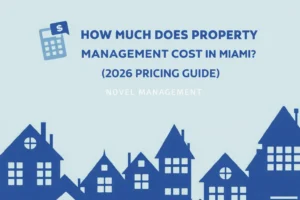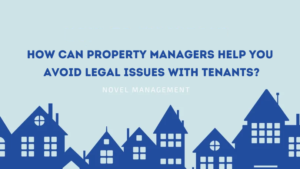The landlord-tenant relationship is not just governed by your communication skills but also by law. In order to protect the rights of both parties, state and federal governments have laid out certain regulations. Property managers must be not only aware of state regulations but also the major federal laws. Here we mention 5 laws all property managers must know like the back of their hand.
1. Anti-Discriminatory Laws
The Fair Housing Act is one of the two major federal laws that define regulations regarding the tenant acquiring process. It prohibits discrimination due to color, origin, race, gender, religion, disability, or familial status.
Property managers must take the law into account when drafting a listing and ensure they don’t add discriminatory terms and conditions, or they can be liable to a lawsuit. Even when screening potential tenants, you cannot take action or reject an application based on any of the factors mentioned above.
2. Lease Documentation
Drafting a lease and taking care of the documentation process falls under the landlord’s responsibilities. Because a property manager is playing pseudo landlord, the responsibility of drafting and writing a legal lease document with transparent terms and conditions falls upon the manager.
The manager must be well aware of state laws here as some states require that you include the security deposit details and other minute details in the legally binding lease agreement. The tenant’s name, the rent, and lease terms must be very clearly mentioned to avoid disagreement in the future.
The document must also contain all essential clauses and necessary advice for the tenants, such as purchasing insurance.
3. Providing a Safe Environment and Required Disclosures
As the property manager, you must make sure that the property is safe for inhabitation. All appliances must be in working conditions, there should be no safety hazards, and the property must be free of insect infestations at the very least.
Some states even require that a landlord or property manager must include disclosures in a legally written document. The laws vary from state to state, but the most common requirements include providing information on lead-based paint hazards, the presence of mold, the presence of sex offenders, crime rates in the area, or any other potential health and safety hazards.
4. Repairs to the Property
Property managers can clearly outline repair responsibilities in the lease agreement. Doing so eliminates unnecessary arguments between the manager and the tenant. It is now the tenant’s legal right to request the manager or landlord to ask for certain repairs, and they have to respond timely.
5. Renter’s Right to Privacy
Federal laws protect a renter’s right to privacy. If a landlord or manager wishes to make a visit, they must inform the resident 24 to 48 hours prior to their visit and must do so at a reasonable time.
These are 5 laws all property managers must know. There are countless others that govern the tenant and landlord/property manager relationships. These laws exist to protect both parties’ rights and ensure the peaceful functioning of the rental industry.




